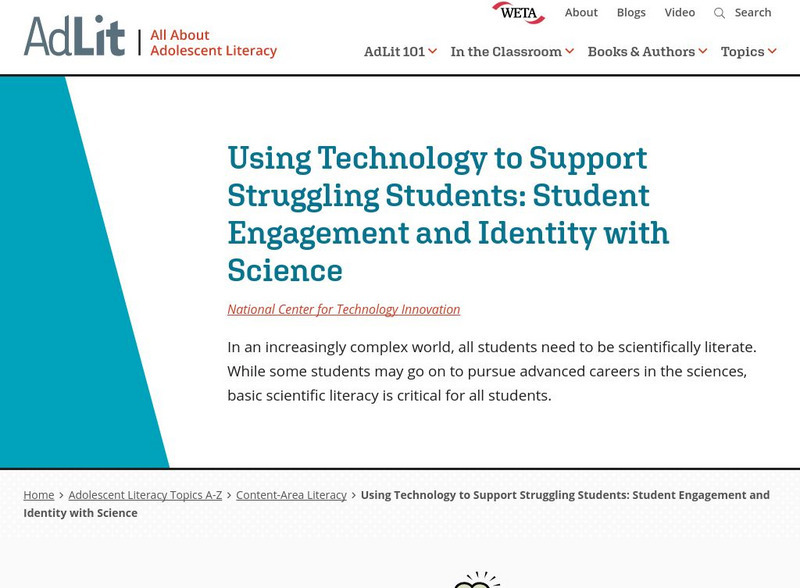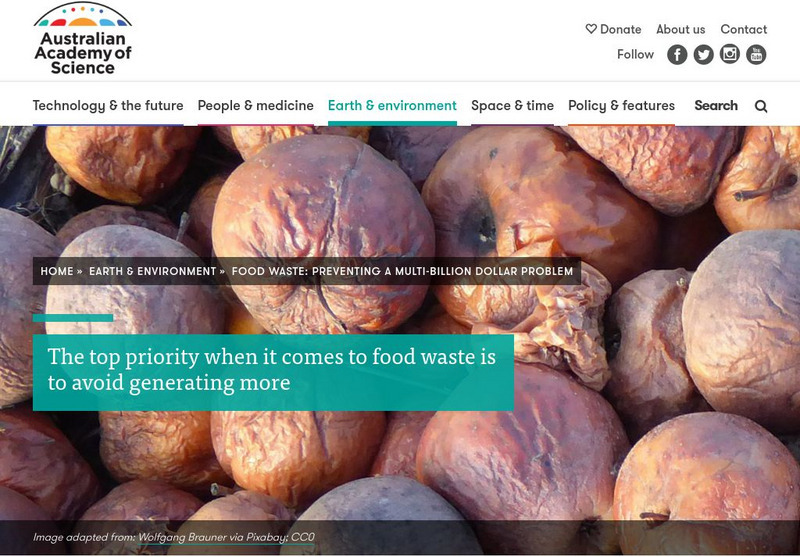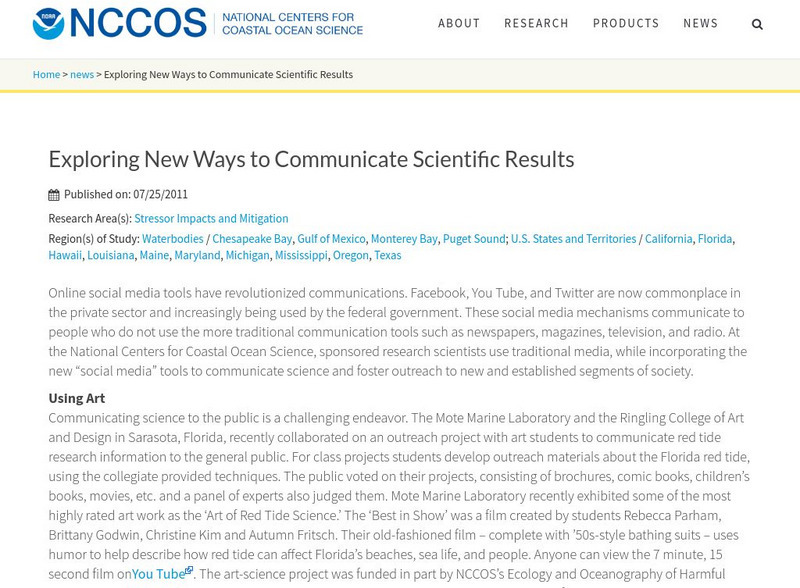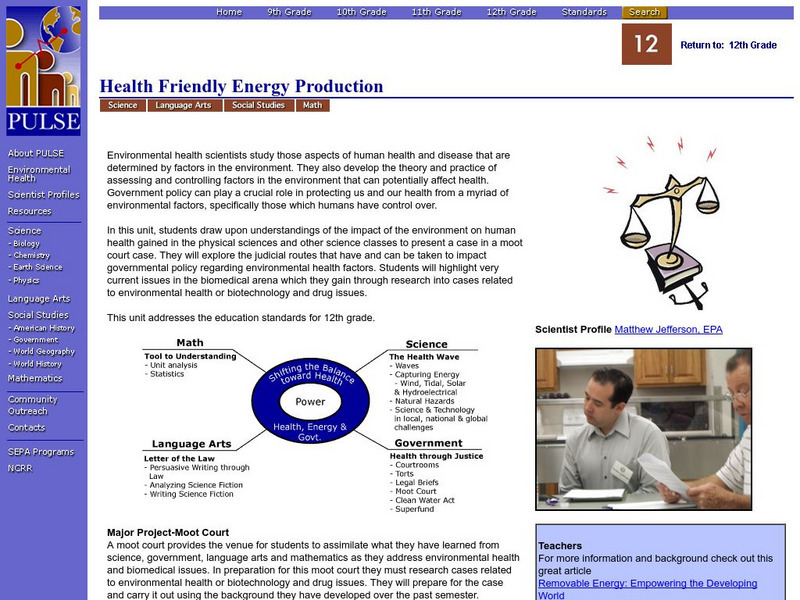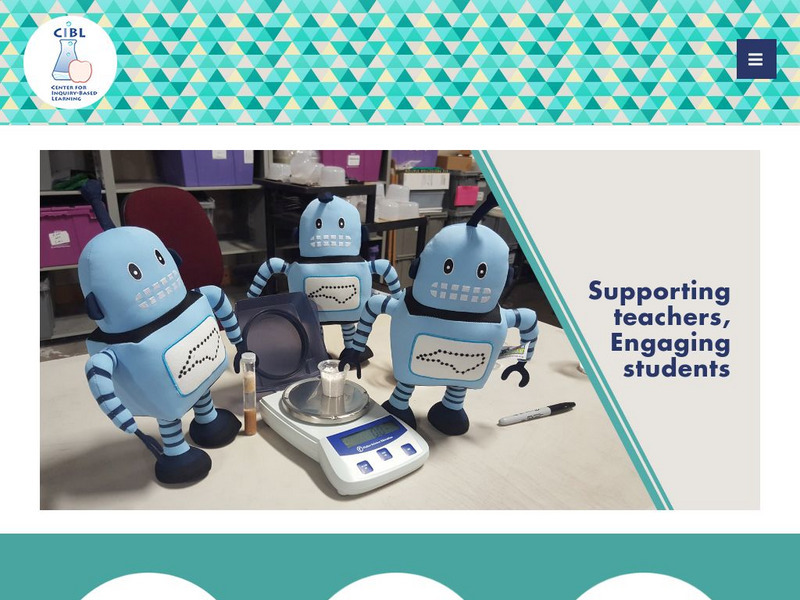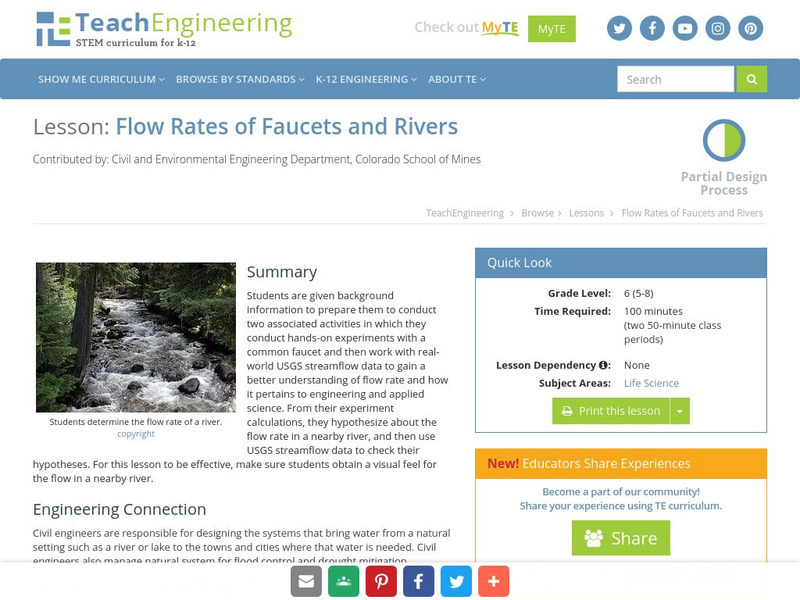AdLit
Ad lit.org: Using Technology to Support Struggling Students
In an increasingly complex world, all students need to be scientifically literate. While some students may go on to pursue advanced careers in the sciences, basic scientific literacy is critical for all students.
Other
Australian Acad. Of Science: Food Waste: Preventing Multi Billion Dollar Problem
The top priority when it comes to food waste is to avoid generating more. Food waste includes all food intended for human consumption that never reaches us, as well as edible food that consumers throw away. As it rots in landfills, food...
NOAA
Noaa: Nccos: Exploring New Ways to Communicate Scientific Results
Discusses the many types of media technology that scientists have available today to communicate the results of their research. These include social media tools, educational web pages, videos, virtual worlds, and podcasts. Many examples...
Other
Mit: A New Angle on Pyramids
A team of researchers at the Massachusetts Institute of Technology investigated whether the ancient Egyptians could have used a synthetic concrete for the huge stones used in building the pyramids. The theory has met enormous resistance...
University of Arizona
Pulse: Health Friendly Energy Production
A cross curricular project where young scholars conduct a moot court to explore the role government policy plays in protecting our health. The focus of the unit is how our power effects our environmental health. Students use their...
Other
Duke: Center for Inquiry Based Learning
Duke University has established the Center for Inquiry-Based Learning. It serves to enhance math and science lessons. Click on Resources for good examples of Inquiry-based lesson plans.
TeachEngineering
Teach Engineering: Flow Rates of Faucets and Rivers
In the Flow Rate Experiment, students perform hands-on experiments with a common faucet, as well as work with the Engineering Our Water Living Lab (accessible through TeachEngineering.com) to gain a better understanding of flow rate and...
